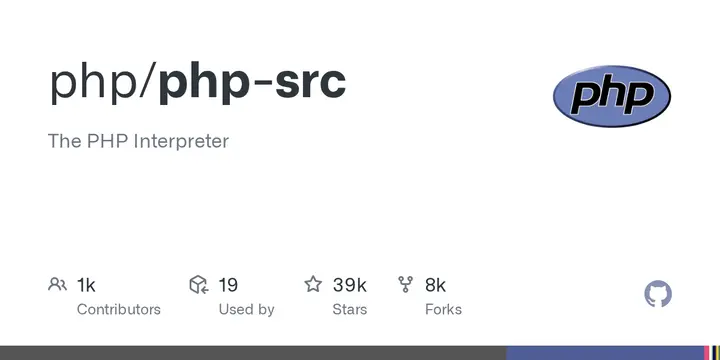PHP 8.4.13 has been officially released by Calvin Buckley, marking a noteworthy update for the widely-used web development scripting language. This release focuses on critical bug fixes and performance enhancements, addressing several key issues that impact core functionalities, memory management, and specific extensions, including CLI, Date, and OpenSSL.
Among the critical fixes is a resolution for problems associated with the repeated inclusion of files containing the `__halt_compiler()` function, which previously triggered "Constant already defined" warnings. Additionally, the update rectifies the handling of string literals exceeding 2GB, preventing signed int overflow errors.
Improvements in memory management and garbage collection are also significant in this release, particularly regarding Zend weak references, which now help prevent potential Use-After-Free (UAF) vulnerabilities. The update further brings enhancements to a variety of PHP extensions, with notable changes including better error messaging for IPv6 address listening and improved handling of partial-hour UTC offsets in the `date_sunrise()` and `date_sunset()` functions. The update also addresses potential memory leaks across various scenarios.
Security concerns have been meticulously addressed in PHP 8.4.13, including UAF vulnerabilities resulting from improper Phar decompression handling with invalid extensions. This enhancement is crucial for maintaining the reliability and security of web applications developed in PHP.
Overall, PHP 8.4.13 is a vital update that not only fixes critical issues but also enhances the overall functionality and performance of the language, ensuring developers can build robust, secure web applications. As PHP continues to evolve, each release builds on the foundation of its predecessors, making it essential for developers to stay updated with the latest versions to leverage improvements and safeguard their applications.
For more details about PHP 8.4.13, you can visit the official release page at php/php-src
Among the critical fixes is a resolution for problems associated with the repeated inclusion of files containing the `__halt_compiler()` function, which previously triggered "Constant already defined" warnings. Additionally, the update rectifies the handling of string literals exceeding 2GB, preventing signed int overflow errors.
Improvements in memory management and garbage collection are also significant in this release, particularly regarding Zend weak references, which now help prevent potential Use-After-Free (UAF) vulnerabilities. The update further brings enhancements to a variety of PHP extensions, with notable changes including better error messaging for IPv6 address listening and improved handling of partial-hour UTC offsets in the `date_sunrise()` and `date_sunset()` functions. The update also addresses potential memory leaks across various scenarios.
Security concerns have been meticulously addressed in PHP 8.4.13, including UAF vulnerabilities resulting from improper Phar decompression handling with invalid extensions. This enhancement is crucial for maintaining the reliability and security of web applications developed in PHP.
Overall, PHP 8.4.13 is a vital update that not only fixes critical issues but also enhances the overall functionality and performance of the language, ensuring developers can build robust, secure web applications. As PHP continues to evolve, each release builds on the foundation of its predecessors, making it essential for developers to stay updated with the latest versions to leverage improvements and safeguard their applications.
For more details about PHP 8.4.13, you can visit the official release page at php/php-src
PHP 8.4.13 released
Calvin Buckley has announced the release of PHP 8.4.13, a significant update that addresses various critical bugs and improves performance. This version fixes numerous issues affecting core functionality, memory management, and specific extensions such as CLI, Date, and OpenSSL, among others. The update also resolves security vulnerabilities, including potential UAF (Use-After-Free) threats in certain scenarios, ensuring the reliability and integrity of web applications built with PHP.


